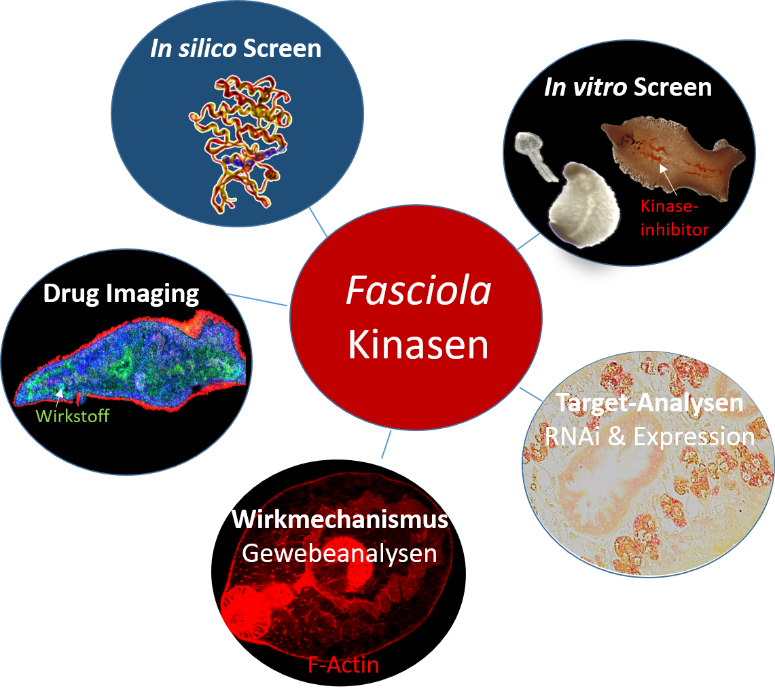C6: The Fasciola kinome as source of new drug targets
PD Dr. Simone Häberlein
Justus-Liebig-Universität Gießen
BFS, Institut für Parasitologie
Schubertstraße 81
35392 Gießen
Tel.: +49 (0)641-99 38476
Fax: +49 (0)641-99 38469
E-Mail: Simone.Haeberlein(at)vetmed.uni-giessen(dot)de
Project description:
Protein kinases regulate a vast variety of cellular processes and represent promising targets not only for therapy of cancer, but also infections with parasites. One common feature of both disease types is the involvement of stem cells in tissue growth. We pursue the hypothesis that inhibition of protein kinases can be employed as a new therapeutic option against the liver fluke Fasciola hepatica, a globally prevalent zoonotic and NTD-associated pathogen. The project involves three aspects: (1) bioinformatical identification of putative drug targets within the Fasciola kinome and their genetic validation, (2) identification of kinase inhibitors with activity against liver flukes; and (3) characterization of the mode of action of potent kinase inhibitors by using biochemical and imaging-based methods.
In cooperation with the Spengler lab (project E4) we established AP-MALDI mass spectrometry imaging to achieve “drug imaging” within liver fluke tissue, which allows to study the route of drug uptake, its kinetic and tissue tropism of a drug.

Strategy to identify protein kinase inhibitors as drug candidates against the liver fluke Fasciola hepatica. ©Simone Häberlein
Scientific goal:
This projects aims to identify protein kinase inhibitors that can serve as new drug candidates for the therapy of fasciolosis.
DRUID Collaboration partners:
A2 Grünweller lab, B4 Schlitzer lab, B5 Grevelding lab, B7 Falcone lab, E4 Spengler lab
References C6: 1. Houhou et al. (2019) Sci Rep 9:15867. 2. Li et al. (2019) Parasitol Res 118(3):881-890. 3. Morawietz et al. (2020) Front Vet Sci 7:611270. 4. Mokosch et al. Anal Bioanal Chem 413(10): 2755-2766. 5. Morawietz et al. (2022) Parasitol Res (online ahead of print) doi: 10.1007/s00436-021-07388-1

